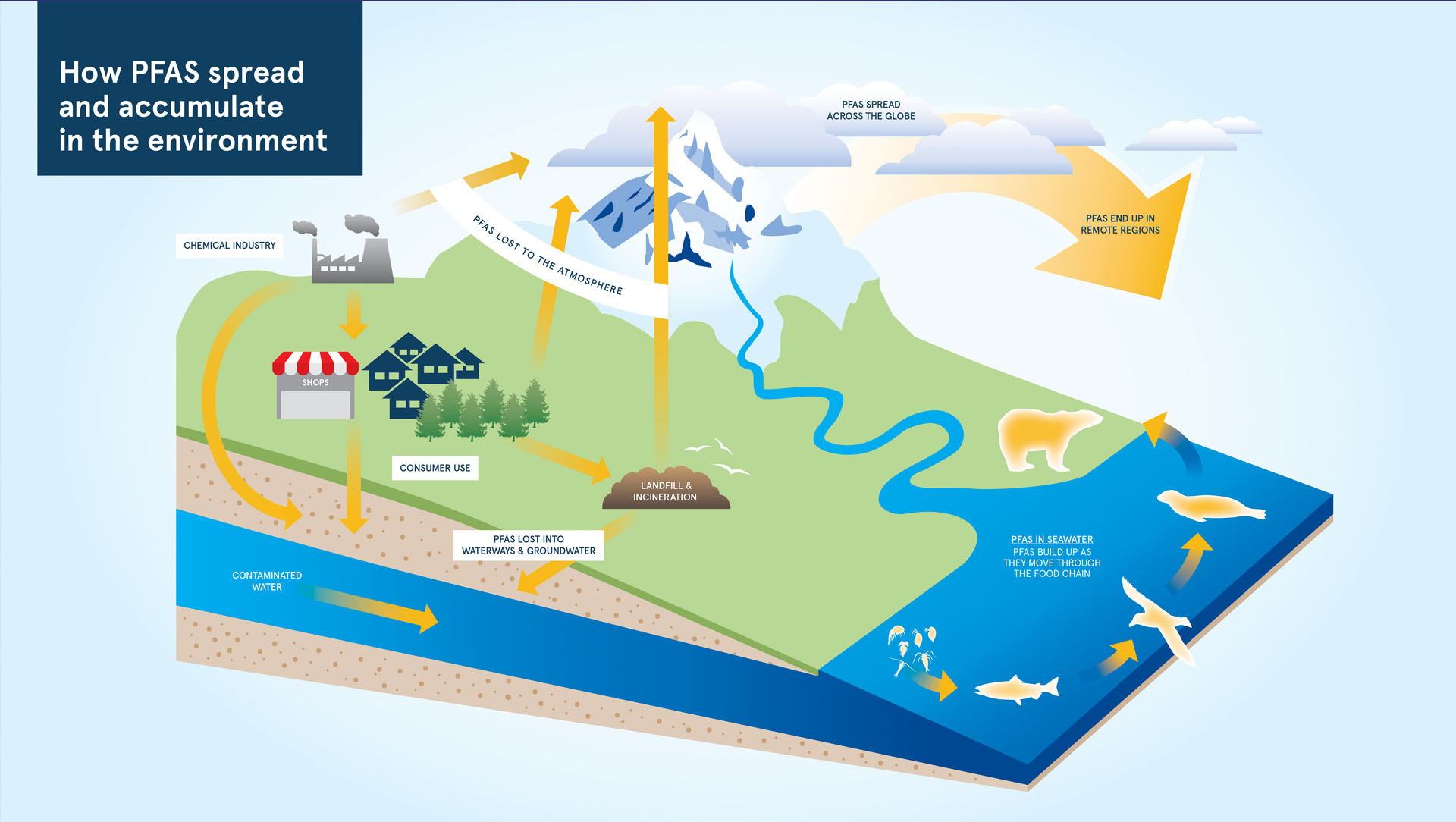A FIDRA PROJECT
PFAS Free
PFAS are a group of over 10,000 industrial chemicals, used in many everyday items, that now pollute air, soil, and water worldwide. These ‘forever chemicals’ build-up along food chains, causing harm to both people and wildlife. PFAS have been connected with a wide range of health concerns including growth, learning and behavioural problems, cancer, immune system disorders and fertility issues. The extreme persistence of these chemicals means their presence has the ability to risk environmental and public wellbeing for generations to come.
Fidra are working to demonstrate effective alternatives to PFAS use in support of transitioning towards a PFAS-free economy. This has included case studies on school uniforms, paper and board food packaging and our current project, PFAS use in pesticides.
PFAS have been found in more than 600 wildlife species across the globe. Image: Mana5280, Unsplash
THE PROBLEM
PFAS are extremely persistent, highly mobile and can bioaccumulate in wildlife and people. Very little is known about the vast majority of these chemicals, but those that have been studied in depth have been linked to significant environmental and human health concerns. PFAS continue to be added, often unnecessarily, to a huge variety of products, from clothing, furniture and cosmetics to food packaging, cookware and pesticides.

PFAS can accumulate within the environment, wildlife and people. Image: Fidra
THE SOLUTION
Fidra, alongside other environmental NGOs, have developed a joint Action Plan for transitioning the UK towards a PFAS-free economy. This 7-step plan outlines key opportunities to reduce PFAS pollution and support safer alternatives. By preventing emissions at source, ensuring effective monitoring and championing product innovation, the UK can help provide a safer and more sustainable future for people, wildlife and the environment.
PFAS are used in pesticides across the UK. Image: Magda Vrabetz, Unsplash
OUR ASKS
A PFAS-free economy
We’re calling on the UK Government to protect the environment and public health by committing to transition towards a PFAS-free economy using steps outlined in the joint NGO Action Plan.
PFAS in pesticides
To protect soil health and future food security, we’re calling on the UK Government to restrict PFAS use in pesticides as part of wider commitments to reduce pesticide use, and to improve transparency of pesticide inert ingredients along supply chains.
We’re also asking farmers and agronomists to support sustainable alternatives to pesticides, such as Integrated Pest Management (IPM), wherever possible, and where pesticides are still used, to talk with suppliers about the potential presence of PFAS.
PFAS can be found in a wide range of consumer products, including clothing, cosmetics and food packaging. Image: Alexandra Gorn, Unsplash
WHAT WE’VE ACHIEVED
Fidra worked with UK supermarkets to successfully encourage a phase-out of PFAS-based stain resistant coatings in school uniforms.
Fidra published a report, ‘Forever Chemicals in the Food Aisle’, demonstrating the widespread use of PFAS in paper and cardboard food packaging, and through dialogue with the UK food sector, have seen major UK supermarkets commit to take action on PFAS in their food packaging.
Alongside other environmental NGOs, Fidra has supported development of an Action Plan for transitioning the UK towards a PFAS-free economy. The plan outlines 7 clear and comprehensive steps for the UK to successfully achieve a PFAS-free economy by 2035.


